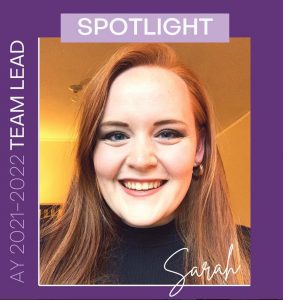Part 2: Translating the Words of Others and Crediting Sources
For some students, paraphrasing creates anxiety. Am I doing it correctly? Am I plagiarizing? What do I need to cite? How often should I cite? Where do the citations go? What is common knowledge? And those who are particularly nervous want clear but often impossible guidelines, such as how many words they can take from a text before they need to put it in quotation marks. This last concern is the reason some students put quotation marks around simple expressions of data (“HIV prevalence in South Africa is 19.1%”) and cite the 2020 UNAIDS annual report. They saw that sentence in the report and now are afraid that not using quotation marks may get them in trouble for plagiarism.
I try to move the conversation about paraphrasing and citation away from fear and toward confidence and generosity. Drawing on and citing the work of others is a way of interacting with the scientists and thinkers whose work has contributed to mine. And it has everything to do with the relationship I’m trying to build with reader through the words I put on the page.
Paraphrasing and citing the work of others is, first, a way to enter into conversation with people who are writing in your field. We take information and ideas from other authors and we use it to shape our own knowledge and perspective. When we draw on the work of others, we are entering a conversation with them and developing our voice as we go. Writing is a way of developing expertise and confidence. As you read the work of others, intertwining their information and words with your own, you develop your own voice and expertise.
Here are some of the reasons I cite:
To give credit where it is due. This is the most important reason I cite. I want to acknowledge the hard work of others. So often the art of paraphrasing and norms of citing are talked about as covering your ass. I’ve never thought of it that way and I don’t want my students to either. I want them to approach their citations creatively and generously, not defensively.
To establish my authority to write about the topic and develop my confidence and voice. I just described paraphrasing as an art, a creative way of blending the work of others with new information and my own perspective. I am often writing at the limits of my knowledge. By paraphrasing and citing the work of others I convince myself and signal to my readers that I have something to say that is worth listening to.
To signal to readers in a concise way that I know the literature. When I first started reading public health articles, I was always puzzled by seemingly obvious statements followed by a long list of citations. For example, Children who are orphaned at a young age often experience psychosocial challenges (1-20). I eventually realized that the (1-20) is a form of shorthand, showing I have read widely without getting pulled into tangents only somewhat relevant to the angle I am taking in my paper about childhood adversity and mental health.
To engage in the scholarly conversation. When I was working on my masters and doctoral degrees in English literature we often talked about our writing as participating in a conversation with other readers and thinkers. Writing can be a lonely thing, so I always appreciated this reminder that it is also a way of participating in a community And it’s an important reminder for students, even if no one reads the paper other than you, your professor, and a couple other students.
To help interested readers find my sources. Curious readers who want to do further reading or who have questions about my interpretation of a source should be able to find the source easily.
I will leave you with this challenge. The next time you are writing something that draws on the work of others think about your paraphrasing and citation as acts of creativity.
Read Part 1: Quoting the Words of Others in Public Health Writing


